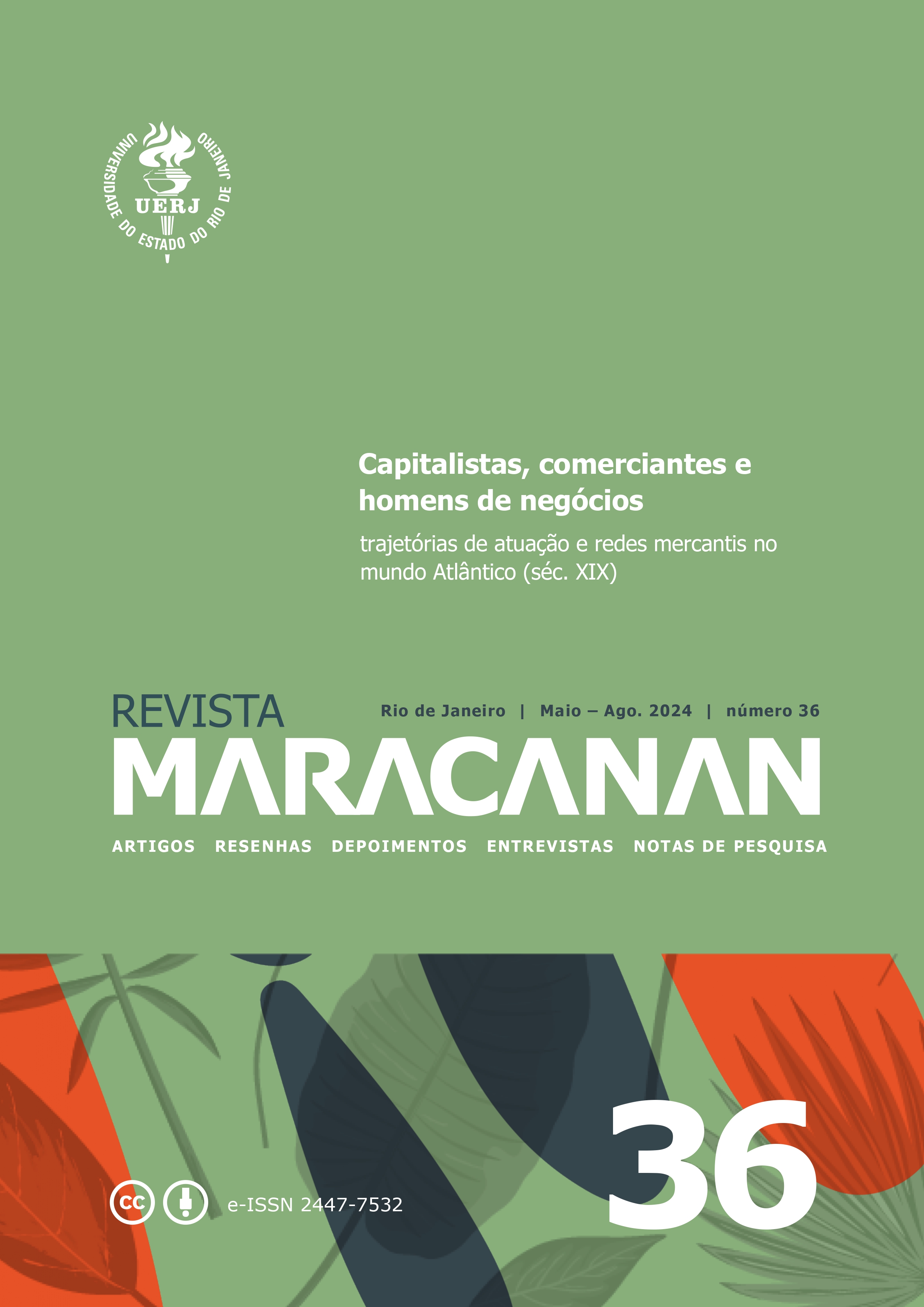Turfe, famílias de elite e negócios no Recife oitocentista
DOI :
https://doi.org/10.12957/revmar.2024.83172Mots-clés :
Turfe, Rede de apoio, Recife, EliteRésumé
O presente estudo tem com proposta analisar como as famílias de elite de Recife utilizaram o turfe como uma forma de diversificar os seus empreendimentos frente a uma conjuntura de incertezas, levando em consideração uma série de proibições que iam de encontro com a conjuntura escravista – um dos seus mercados mais rentáveis –, tal como a proibição do tráfico transatlântico (1850), a lei do ventre livre (1871) e, por fim, a abolição da escravidão (1888). Neste sentido, viso observar como esses agentes criaram uma rede de apoio social e financeiro, visto que em 1850 foi instalada a primeira instituição turfística e nos anos finais da década de 1880 foram inaugurados três clubes que dinamizaram a vida social e econômica da capital da província de Pernambuco ao longo dos oitocentos. Nestas circunstâncias, analisar o turfe através destes paradigmas possibilita entender as relações sociais e econômicas dos agentes que estavam inseridos nos clubes de prática equestre na capital da província de Pernambuco.
Références
BRASIL, Eric; NASCIMENTO, Leonardo Fernandes. História Digital: reflexões a partir da hemeroteca digital brasileira e do uso de caqdas na reelaboração da pesquisa histórica. Estudos Históricos, Rio de Janeiro, v. 33, n. 69, p. 196-219, abr. 2020.
DEBORD, Guy. A sociedade do espetáculo. Rio de Janeiro: Contraponto, 1997.
ERREIRA, Edgardo Pires. A mística do parentesco: uma genealogia inacabada. Vol. 6. Guarulhos: ABC, 2011.
FERNANDES, Florestan. A revolução burguesa no Brasil: ensaio de interpretação sociológica. São Paulo: Contracorrente, 2020.
GRAHAM, Richard. Clientelismo e Política no Brasil do Século XIX. Rio de Janeiro: UFRJ, 1997.
LUCENA, Ricardo Figueiredo. O esporte na cidade: aspectos do esforço civilizador brasileiro. 2001. Tese (Doutorado em Educação Física) – Universidade Estadual de Campinas, Campinas (SP), 2001.
MELO, Victor Andrade. Entre a elite e o povo: o sport no Rio de Janeiro do século XIX (1851-1857). Tempo, v. 20, n. 37, p. 1-22, 2015.
MELO, Victor; et al. Pesquisa Histórica e História do Esporte. Rio de Janeiro: 7 Letras, 2013.
MELO, Victor. Cidade Sportiva (2): os esportes pioneiros. Rio de Janeiro: 7 Letras, 2022.
SANTOS, João Manuel C. Malaia; GIGLIO, Sérgio Settani. O papel da memória na construção da identidade organizacional: a sociedade jockey club (1868-1932) e o “desenvolvimento da riqueza pastoril”. Recorde, Rio de Janeiro, v. 10, n. 1, p. 1-21, jun. 2017.
SILVA, Sandro Vasconcelos da. Quando o Recife Sonhava em ser Paris: a mudança de hábitos das classes dominantes durante o século XIX. Saeculum: Revista de História, João Pessoa, v. 2, p. 215-226, 25 jul. 2011.
VARGAS, Jonas Moreira. Entre a Paróquia e a Corte: uma análise da elite política do Rio Grande do Sul (1868-1889). 2007. Dissertação (Mestrado em História) – Universidade Federal do Rio Grande do Sul, Porto Alegre, 2007.
Téléchargements
Publiée
Comment citer
Numéro
Rubrique
Licence
© Thiago Lindemaier da Rosa 2024

Ce travail est disponible sous la licence Creative Commons Attribution 4.0 International .
Os autores mantêm os direitos autorais e concedem à Revista Maracanan o direito de publicação, sob uma Licença Creative Commons Atribuição 4.0 Internacional, a qual permite que outros distribuam, remixem, adaptem e criem a partir do seu trabalho, mesmo para fins comerciais, desde que lhe atribuam o devido crédito pela criação original.
Os dados e conceitos abordados são da exclusiva responsabilidade do autor.
A Revista Maracanan está licenciada com uma Licença Creative Commons Atribuição 4.0 Internacional.





